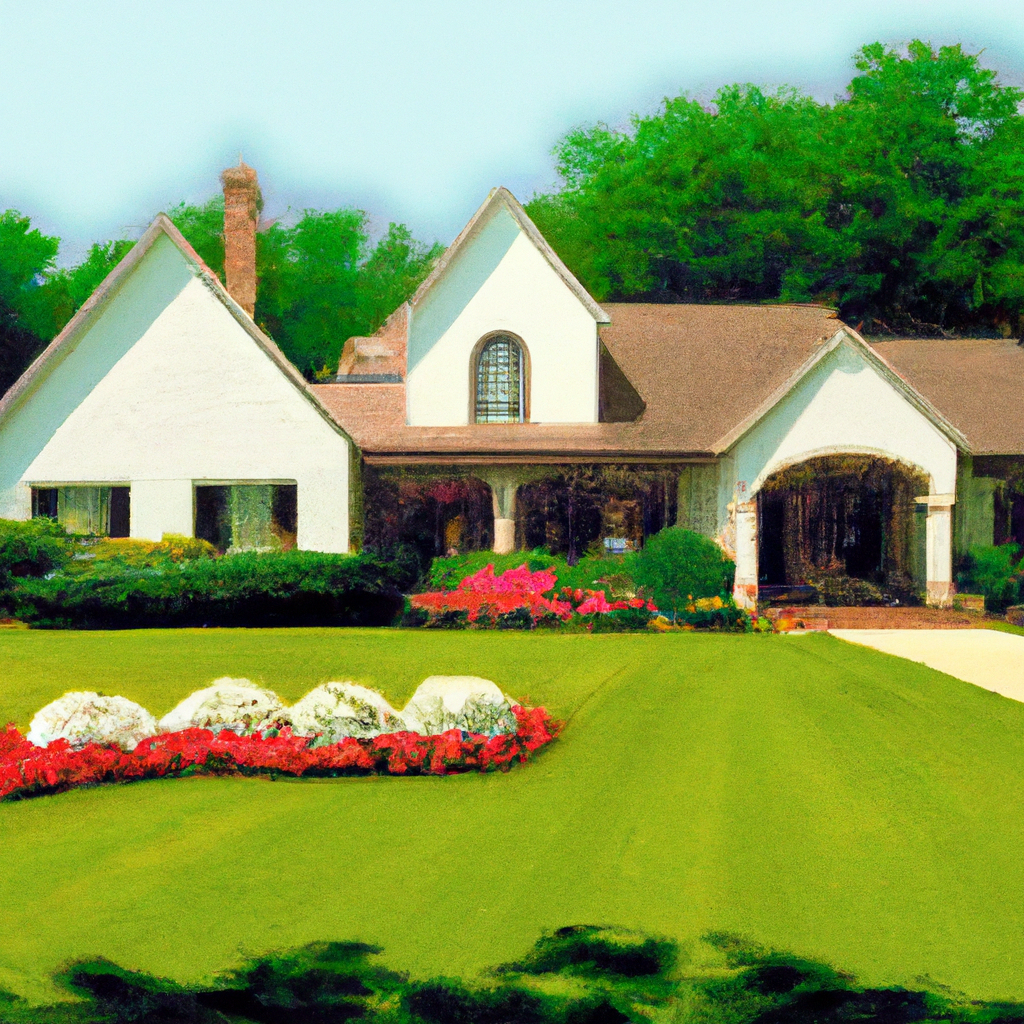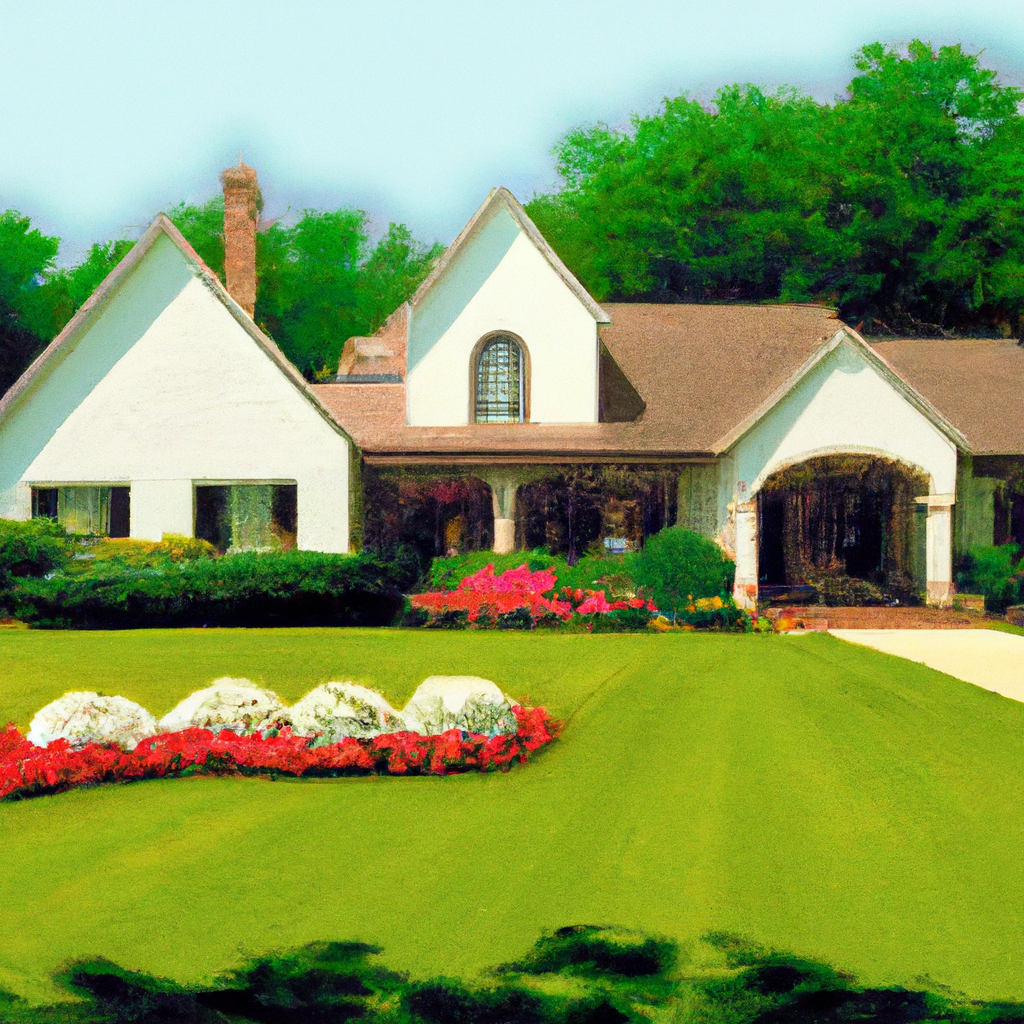Are you a modern homeowner looking to renovate your house? Look no further! This article is packed with valuable tips and tricks to help you navigate the world of home renovation. Whether you are a DIY enthusiast or prefer to hire professionals, we’ve got you covered. From budgeting and planning to choosing the right materials and incorporating the latest design trends, you’ll find everything you need to know to transform your home into a stylish and functional space. Get ready to embark on an exciting journey of turning your house into your dream home!

Understanding the Basics of Home Renovation
Understanding the importance of home renovation
Home renovation is an essential undertaking for homeowners who want to enhance the functionality, aesthetic appeal, and value of their property. Whether you’ve recently purchased a new home or have been living in your current one for years, renovating your living spaces can transform your house into the home of your dreams. Home renovation not only allows you to customize your living spaces to suit your needs and preferences but also ensures that your property remains in good condition, preventing potential issues in the future.
Different aspects of Home renovation
Home renovation encompasses various aspects, including upgrading living spaces, revamping the kitchen and bathrooms, upgrading the exterior of the house, and considering energy efficiency and environmental considerations. From modernizing your living room to transforming entertainment spaces, each aspect of home renovation plays a crucial role in creating a comfortable and visually appealing home environment. By understanding the different aspects involved in home renovation, you can effectively plan and execute your renovation project.
Knowing when to renovate
Knowing when to renovate is an important consideration for homeowners. While some may choose to renovate immediately after purchasing a property, others may wait until certain areas of their house require repair or become outdated. It’s important to assess the condition of your home and consider factors such as your budget and available time before deciding to renovate. Additionally, staying updated with the latest design trends and technology advancements can help you identify areas of improvement and make informed decisions regarding your renovation project.
Planning Your Home Renovation
Setting a realistic budget
Before diving into any home renovation project, it’s crucial to set a realistic budget. Assess your finances and determine how much you can comfortably allocate towards your renovation. Consider the scope of the project, materials and labour costs, as well as any additional expenses that may arise during the renovation process. Setting a budget will help you prioritize tasks and avoid overspending, ensuring that your renovation stays within your means.
Choosing the right time for renovation
Timing is another important factor to consider when planning a home renovation. Evaluate your schedule and determine when it’s most convenient for you to undertake the project. Consider factors such as weather conditions, work or personal commitments, and any upcoming events or holidays. Choosing the right time for renovation can help minimize disruptions to your daily routine and ensure a smoother and more enjoyable renovation experience.
Creating a timeline for the project
Creating a timeline is crucial for keeping your home renovation project on track. Break down the project into smaller tasks and assign realistic timelines for each. Consider any dependencies between tasks and allocate adequate time for unexpected delays or setbacks that may arise. By having a clear timeline, you’ll be able to stay organized, monitor progress, and complete your renovation project within the desired timeframe.

Market Exploring for Renovation Materials
Comparing prices of materials
When undertaking a home renovation, it’s important to explore the market and compare prices of materials. Visit local hardware stores, online marketplaces, and consult with suppliers to gather information about the cost and quality of materials you’ll need for your renovation project. By comparing prices, you can make informed decisions and ensure that you’re getting the best value for your money.
Choosing sustainable and durable materials
Choosing sustainable and durable materials is not only beneficial for the environment but also ensures the longevity of your renovation. Look for materials that are eco-friendly, energy-efficient, and can withstand wear and tear. Consider factors such as the material’s lifespan, maintenance requirements, and its impact on indoor air quality. Investing in sustainable and durable materials will not only reduce your environmental footprint but also save you money in the long run by minimizing the need for frequent repairs or replacements.
Getting the right estimated quantity of materials
Accurately estimating the quantity of materials you’ll need for your renovation is crucial to avoid any last-minute purchases or shortages. Measure the dimensions of the areas you’ll be renovating and consult with professionals if needed to ensure precise calculations. It’s always better to have a slightly higher quantity of materials to account for potential waste or adjustments during the renovation process. Make a comprehensive list of all the materials required and keep track of your inventory to stay organized and efficient throughout the project.
Deciding Between DIY and Hiring a Contractor
Benefits of doing it yourself
Taking on a DIY approach for your home renovation project can be a rewarding experience. It allows you to have complete control over the design and execution of your renovation, providing a sense of accomplishment and personalization. DIY projects also offer flexibility in terms of time and budget, as you can work at your own pace and potentially save money on labour costs.
Advantages of hiring a contractor
While DIY projects have their benefits, hiring a contractor can provide a range of advantages. Contractors bring expertise, experience, and specialized skills to the table, ensuring a professional outcome. They can handle complex tasks, manage the renovation timeline, and work within your budget. Additionally, contractors have access to a network of suppliers and subcontractors, potentially securing better deals on materials and completing the project efficiently.
Cost comparison: DIY vs. Contractor
When deciding between DIY and hiring a contractor, consider the cost implications. While DIY projects may save you money on labour costs, they can sometimes lead to unforeseen expenses if mistakes are made or if certain tasks require professional intervention later on. On the other hand, hiring a contractor involves paying for their services, but they can often secure better deals on materials and complete the project faster and more efficiently. Consider your budget, available time, and the complexity of the renovation project when making a decision.

Inspecting and Preparing Your Home for Renovation
Identifying areas that need repair
Before embarking on your home renovation, it’s important to thoroughly inspect your property and identify areas that require repair. Look for signs of water damage, structural issues, or any wear and tear that may affect the renovation process. Addressing these issues beforehand will help prevent further damage and ensure a sturdy foundation for your renovation project.
Performing necessary maintenance before renovation
Alongside repairs, it’s crucial to perform necessary maintenance tasks before initiating your renovation. Clean and declutter your living spaces, addressing any issues with plumbing, electrical systems, or ventilation. A well-maintained home provides a smoother canvas for renovation and ensures that your investment in the project is maximized.
Securing necessary permits
Depending on the scope and nature of your renovation project, you may need to secure necessary permits from local authorities. This is especially important for projects involving structural changes, electrical work, plumbing modifications, or additions to your property. Research the specific permits required in your area and ensure that all legal requirements are met before commencing your renovation. Failure to obtain necessary permits can lead to fines and potential complications in the future.
Renovating Living Spaces
Modernising your living room
The living room is often the hub of household activity, making it a prime space for renovation. To modernize your living room, consider updating the colour scheme, introducing new furniture or rearranging the layout, and incorporating modern lighting fixtures. Pay attention to details such as window treatments, flooring, and wall finishes to create a cohesive and stylish atmosphere. Explore design trends, seek inspiration from home improvement magazines or online platforms, and don’t hesitate to consult with interior design professionals to achieve the desired outcome.
Revamping bedrooms
Bedrooms should be your oasis of rest and rejuvenation, so revamping them is essential for creating a relaxing atmosphere. Start by decluttering and organizing your bedroom, ensuring that storage systems are in place to maximize space. Consider updating the bedding, paint or wallpaper, and incorporating elements of personal style through decorative accessories such as artwork, throw pillows, or rugs. Lighting is also crucial in bedrooms, so explore options such as dimmer switches or bedside lamps to create a comfortable and serene ambiance.
Transforming entertainment spaces
Entertainment spaces, such as home theatres or game rooms, offer an opportunity to enhance your leisure activities. Begin by considering the purpose and functionality of the space. If it’s a home theatre, focus on audiovisual equipment, seating arrangements, and room acoustics. For game rooms, prioritize gaming consoles, comfortable seating, and appropriate lighting. Ensure that the space is optimized for your chosen form of entertainment and reflects your personal preferences, allowing for an enjoyable and immersive experience.

Revamping the Kitchen and Bathrooms
Effective tips for modern kitchen renovation
The kitchen is often referred to as the heart of a home, making a kitchen renovation a high-priority project. Effective tips for modernizing your kitchen include updating countertops, cabinetry, hardware, and appliances. Consider incorporating energy-efficient appliances and lighting solutions to enhance functionality and reduce utility costs. Enhance storage capacity by incorporating space-saving solutions such as pull-out drawers or vertical storage racks. Pay attention to details such as backsplashes, flooring, and fixtures to create a visually appealing and practical kitchen space.
Bathroom overhaul techniques
Bathrooms are another important area to revamp, as they play a crucial role in our daily routines. Techniques for overhauling your bathroom include updating fixtures, such as faucets and showerheads, replacing outdated or worn tiling, and refreshing paint or wallpaper. Consider modernizing the vanity and incorporating storage solutions to declutter and maximize space. Explore options for energy-efficient and water-saving fixtures to reduce your environmental impact while maintaining functionality and style.
Balancing aesthetics and functionality
When revamping your kitchen and bathrooms, it’s important to strike a balance between aesthetics and functionality. Consider your daily routines, storage needs, and the overall flow of the space when making design decisions. Opt for materials that are both visually appealing and durable, ensuring that your renovation stands the test of time. Consult with professionals or utilize design tools to explore layout options and create a harmonious blend of style and practicality in these highly functional areas of your home.
Upgrading the Exterior of the House
Curb appeal improvements
The exterior of your house is the first impression visitors or potential buyers will have, so investing in curb appeal improvements is crucial. Start by assessing the condition of your home’s exterior, including the roof, siding, doors, and windows. Repair any damages and consider updating the colour scheme or finishes to create a fresh and inviting look. Enhance landscaping by trimming trees, planting flowers, and maintaining a neat and well-manicured lawn. The addition of outdoor lighting, a welcoming front entrance, and well-placed outdoor furniture or decor can further enhance your home’s curb appeal.
Landscape makeovers
Landscape makeovers can transform your outdoor space into a beautiful and functional area, perfect for relaxation and entertainment. Start by assessing the natural elements of your property, such as the soil composition, sunlight exposure, and drainage. This will help you determine the types of plants and landscaping features that are most suitable for your space. Consider elements such as walkways, seating areas, water features, and outdoor kitchens or grilling areas to create an inviting and aesthetically pleasing outdoor environment.
Renovating patios and decks
Patios and decks provide valuable space for outdoor activities and gatherings. Renovating these areas involves assessing the structural integrity of the existing structure, repairing or replacing damaged boards or tiles, and applying a fresh coat of sealant or paint. Enhance the functionality and comfort of your outdoor space by adding outdoor furniture, shade structures, or features such as fire pits or outdoor heating systems. Consider incorporating greenery or privacy screens to create a cozy and secluded outdoor oasis.

Energy Efficiency and Environmental Considerations in Home Renovation
Choosing energy-saving appliances
Opting for energy-saving appliances is an excellent way to reduce your carbon footprint while also saving on utility bills. Look for appliances with the ENERGY STAR® certification, as these products meet strict energy efficiency guidelines set by the Environmental Protection Agency. Energy-efficient appliances consume less electricity or water, leading to significant energy savings over time. From refrigerators and washing machines to water heaters and HVAC systems, consider investing in energy-saving models to make your home renovation project more environmentally friendly.
Including renewable energy options
Renewable energy options, such as solar panels or wind turbines, can further enhance the sustainability of your home renovation. These systems utilize natural resources to generate clean energy, significantly reducing your reliance on traditional energy sources. Conduct a thorough assessment of your property’s feasibility for renewable energy installations, considering factors such as sunlight exposure or wind patterns. Explore incentives or government programs that may be available to offset the costs of installing renewable energy systems and lower your environmental impact.
Sustainable renovation practices
Incorporating sustainable renovation practices throughout your project reinforces your environmental commitment. Opt for low VOC (volatile organic compounds) paints and finishes, which emit fewer toxins into the air and contribute to better indoor air quality. Choose sustainable materials like bamboo or reclaimed wood for flooring, countertops, or furniture, reducing the demand for virgin resources. Consider recycling or repurposing materials when possible, minimizing waste and landfill contributions. By embracing sustainable renovation practices, you can create a more eco-friendly home without compromising on style or functionality.
Finalising and Reviewing Your Home Renovation
Inspecting the completed work
Once your home renovation project is complete, it’s crucial to thoroughly inspect the work to ensure it meets your expectations and quality standards. Walk through each area that was renovated and carefully evaluate the details. Check for any unfinished or poorly executed tasks, ensuring that everything has been completed according to the agreed-upon plans and specifications. Address any concerns or issues with your contractor or tradespeople promptly to rectify any deficiencies before the project is deemed finalized.
Dealing with leftover materials
Dealing with leftover materials is an important aspect of wrapping up your home renovation. Properly dispose of any waste materials according to local regulations and recycling guidelines. If there are any salvageable or reusable items, consider donating them to local charities or repurposing them for other projects. Ensure that your property is left clean and free of debris, allowing you to fully enjoy the newly renovated space without unnecessary clutter.
Maintaining your renovated home
Maintaining your renovated home is essential for preserving its beauty and functionality in the long run. Regularly inspect and clean your renovated areas, addressing any issues or damages promptly. Follow the manufacturer’s maintenance guidelines for appliances, fixtures, and finishes to prolong their lifespan. Create a maintenance schedule or checklist to stay organized and ensure that necessary tasks, such as HVAC filter replacements, gutter cleaning, or roof inspections, are performed regularly. By maintaining your renovated home, you can continue to enjoy its benefits for years to come.
In conclusion, home renovation is an exciting and transformative process that allows you to create a living space that reflects your personal style and meets your functional needs. By understanding the basics of home renovation, planning carefully, exploring the market for materials, considering the advantages of DIY versus hiring a contractor, inspecting and preparing your home, and focusing on each aspect of renovation, you can successfully transform your house into the home of your dreams while considering energy efficiency and the environment. With proper planning, budgeting, and a clear vision, you can achieve a beautifully renovated home that provides comfort, functionality, and visual appeal.
